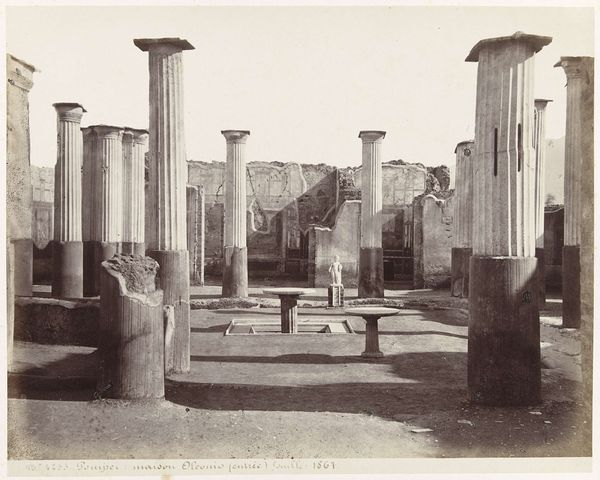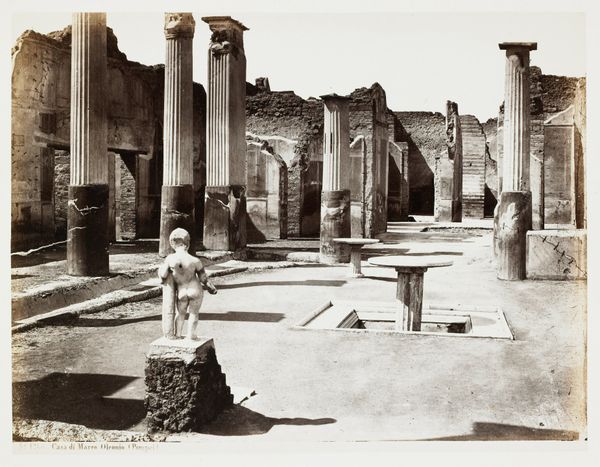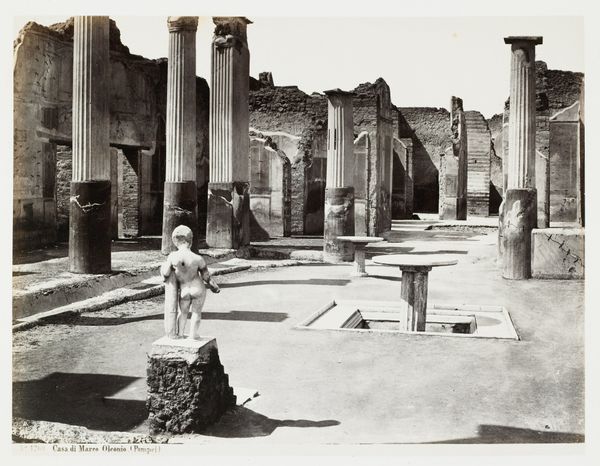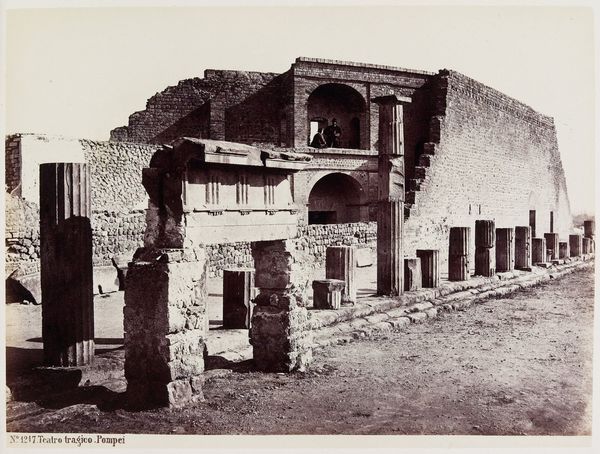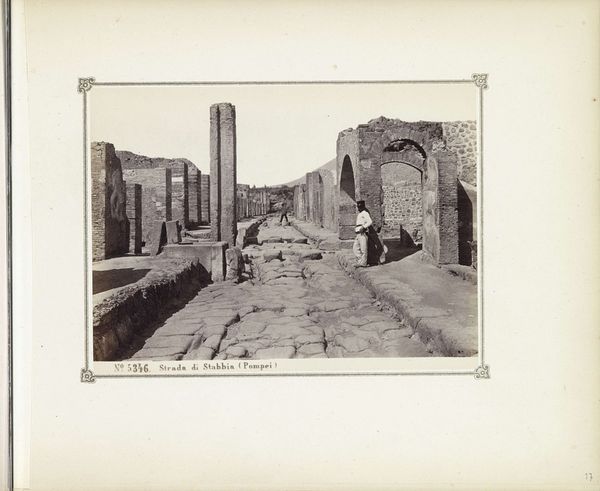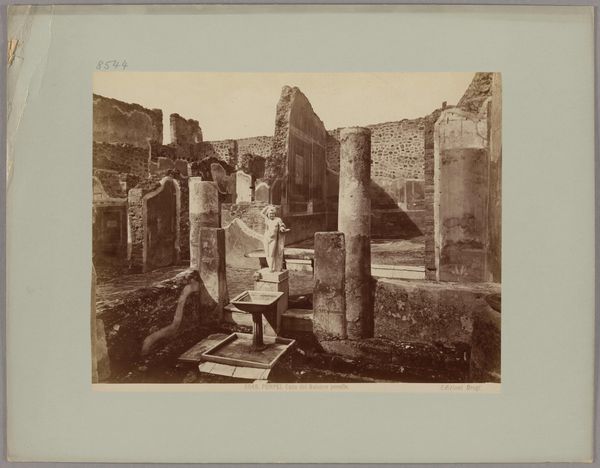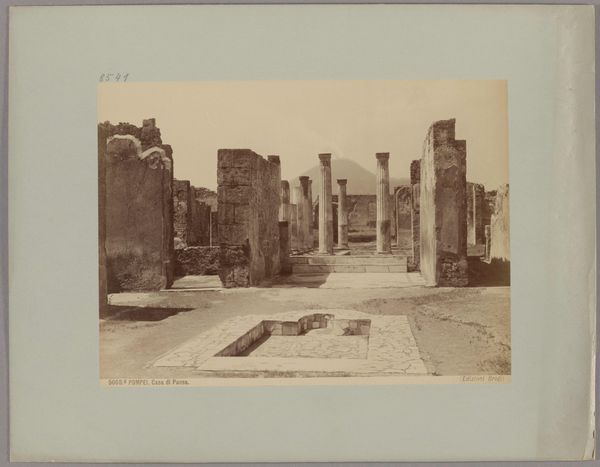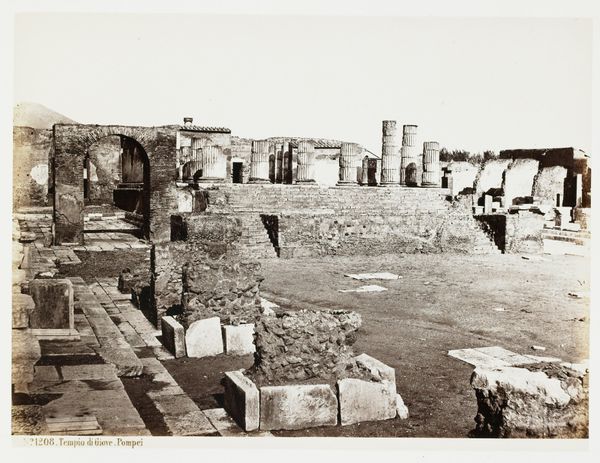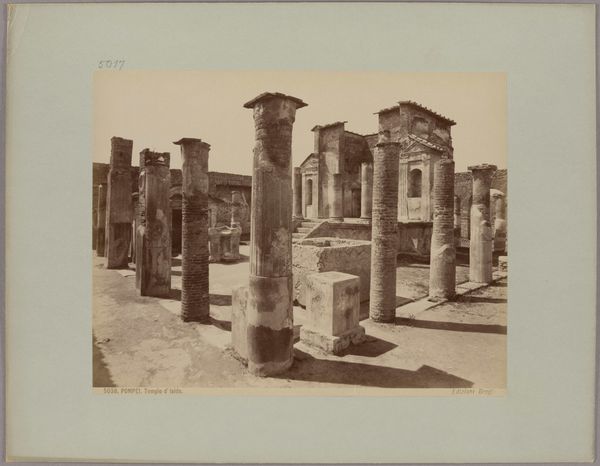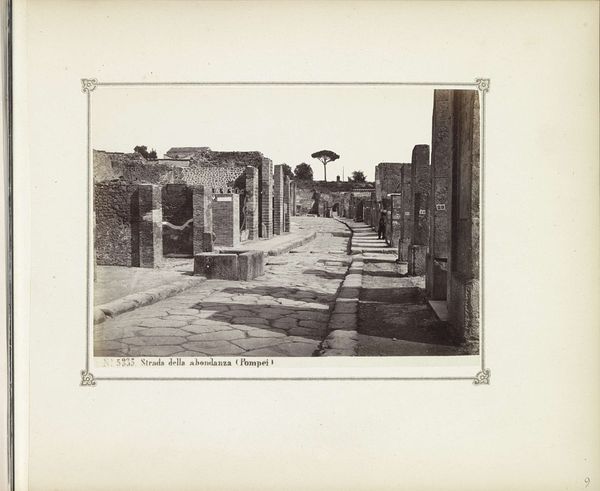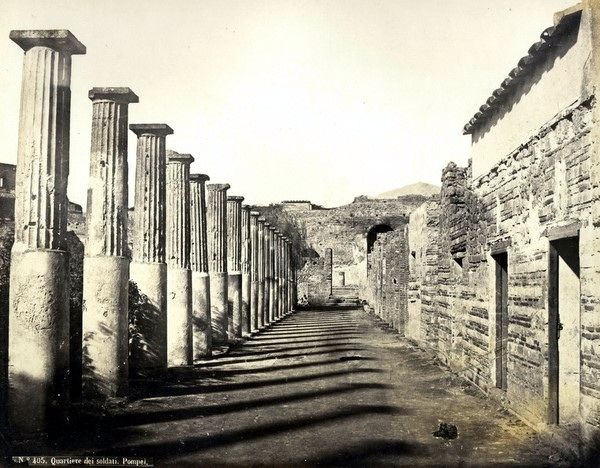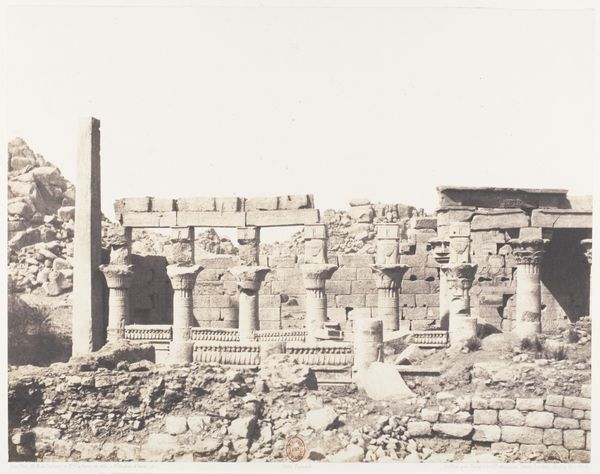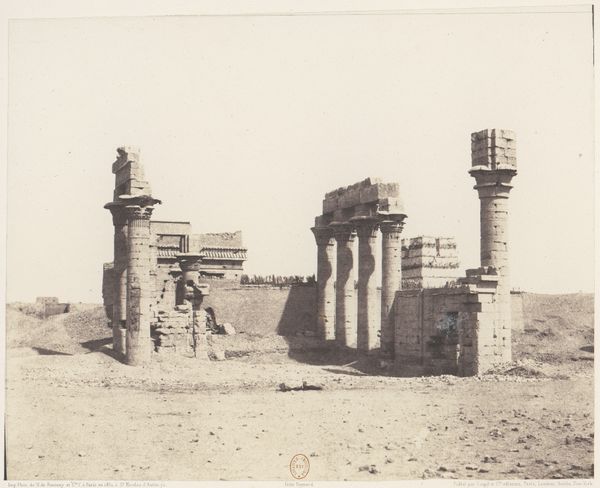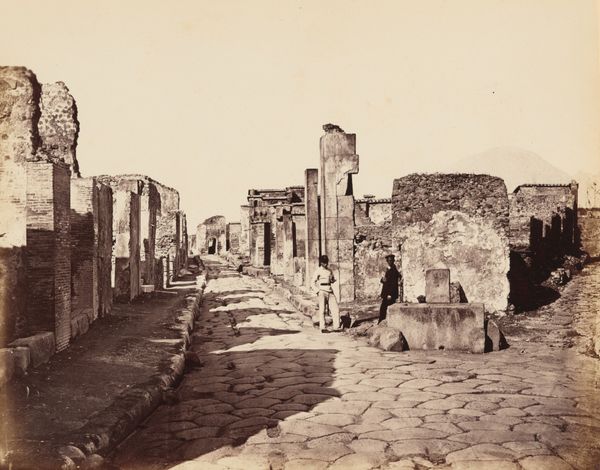
print, photography, gelatin-silver-print
# print
#
greek-and-roman-art
#
landscape
#
house
#
archive photography
#
photography
#
historical photography
#
ancient-mediterranean
#
gelatin-silver-print
#
19th century
#
cityscape
Dimensions: height 206 mm, width 252 mm, height 304 mm, width 402 mm
Copyright: Rijks Museum: Open Domain
Giorgio Sommer made this albumen print titled 'Remains of the House of Oleonio in Pompeii, Italy' in 1861. Sommer, based in Naples, capitalized on the 19th-century fascination with ancient Roman life, particularly after the rediscovery of Pompeii. This image speaks volumes about how the past is consumed. In the 19th century, archaeology was as much about national pride and colonial ambition as it was about historical accuracy. Photography played a crucial role, documenting finds and disseminating images to a wide audience. Sommer's photos catered to tourists eager to possess a piece of antiquity, turning Pompeii into a spectacle. The stark contrast between the classical columns and the mundane objects of everyday life underscores the romanticism projected onto the ancient world. Today, historians continue to use photography archives, travelogues, and archaeological reports to understand not just the ancient world, but how later societies have interpreted and used its legacy.
Comments
No comments
Be the first to comment and join the conversation on the ultimate creative platform.
